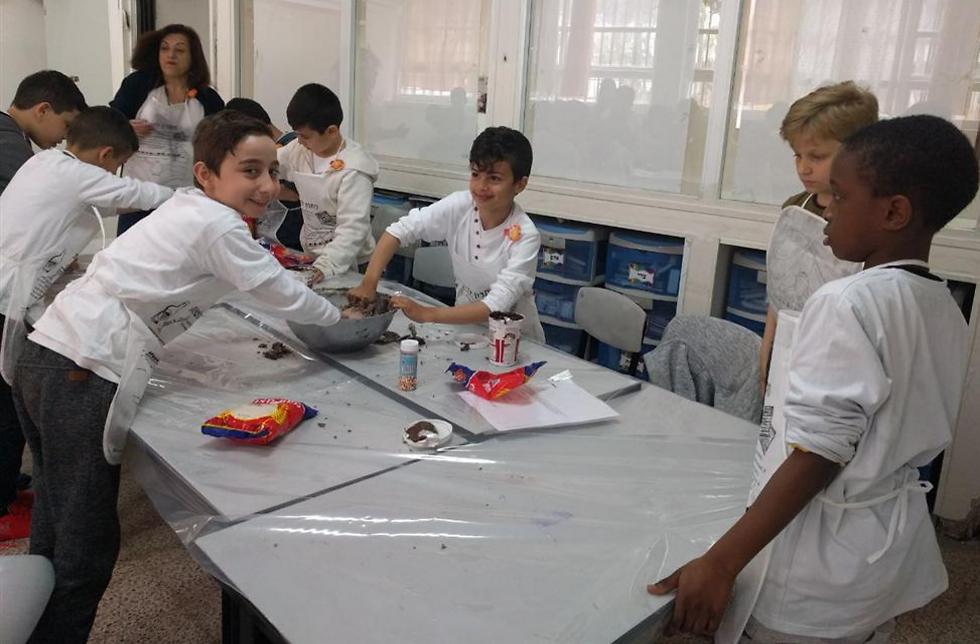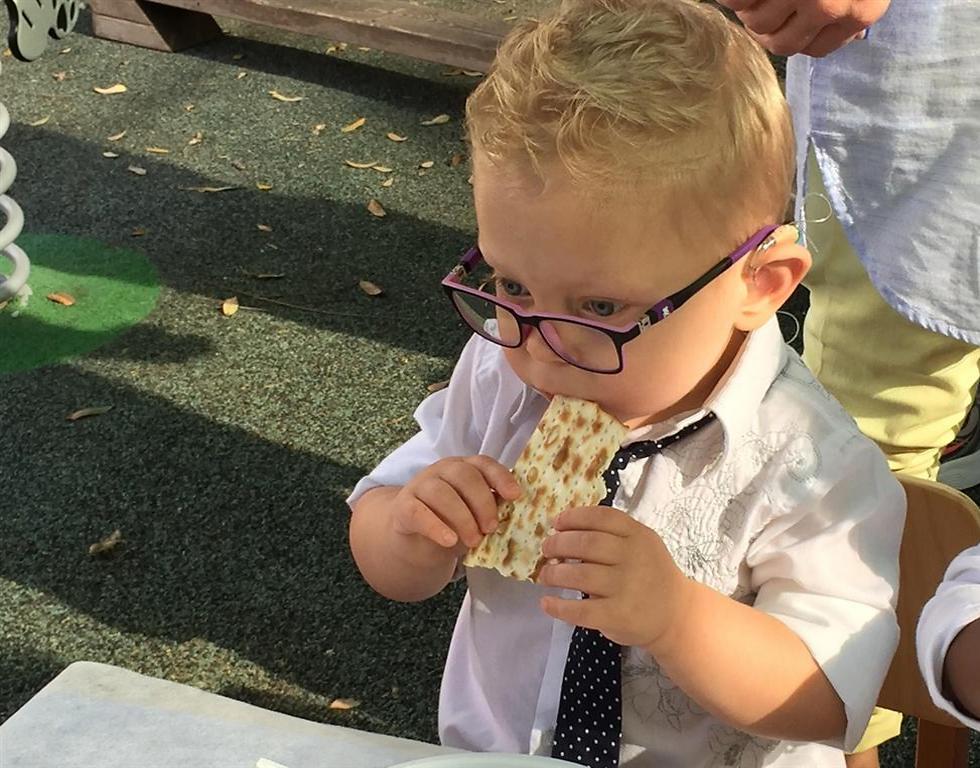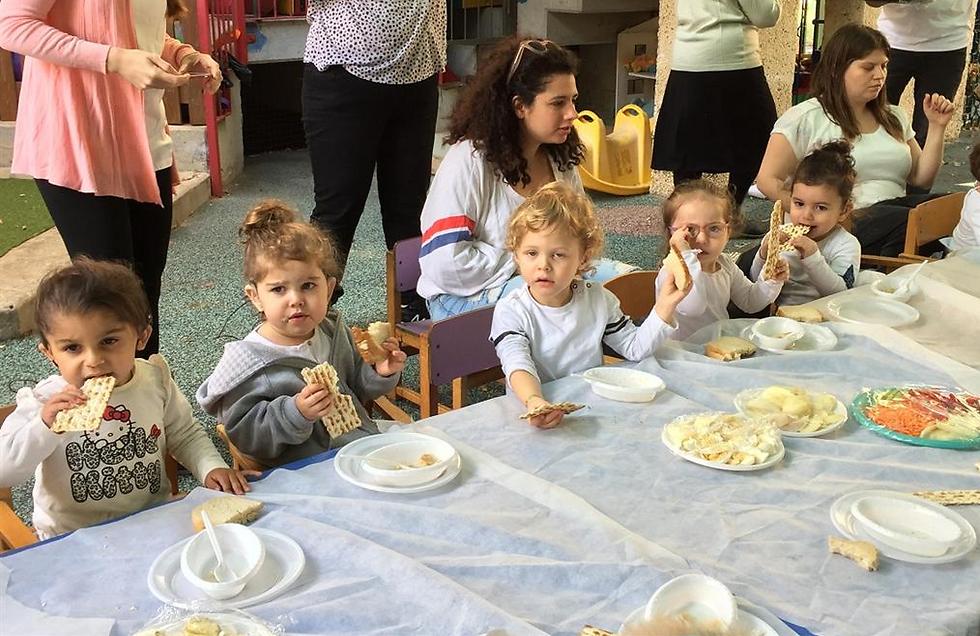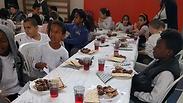
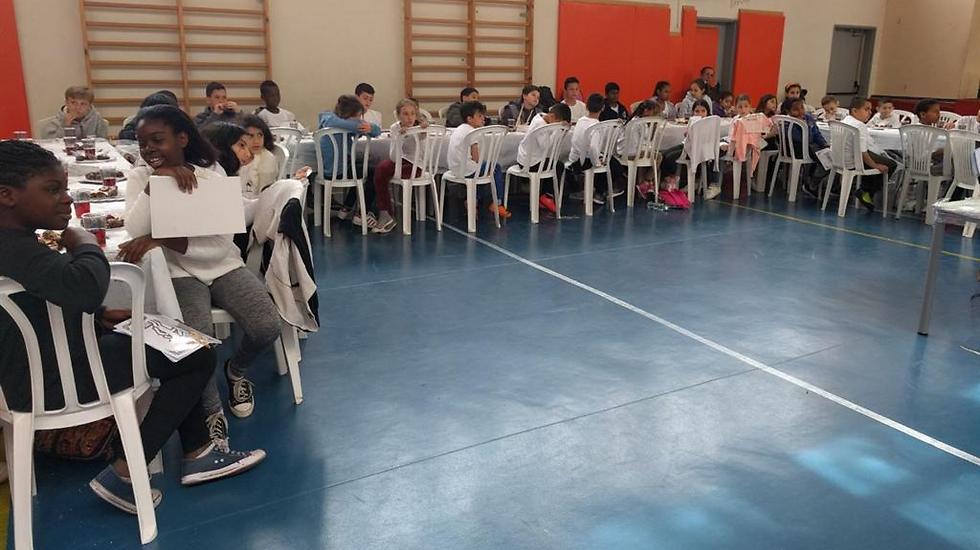
Children of foreign workers write their own Haggadah
An integration program in Tel Aviv joined children from different backgrounds together, as the kids of foreign workers celebrated the Passover Seder and wrote their own Haggadah, recounting personal stories of freedom and yearning for a home in Israel; They were joined by toddlers with hearing impairments, who also took part in the event.
The children of foreign workers in south Tel Aviv have their Passover "Haggadah" story: fourth graders from the Tel Hai the Jordan schools, consisting of the children of foreign workers who meet every few weeks, held a joint Passover Seder under the Tel Aviv Municipality Hevruta program, which aims to integrate young people from different backgrounds from around the city. Sitting together, the children
In addition to the traditional Seder meal, the day's activities included incorporating values and themes from the Haggadah, such as freedom, family unification, independence and immigration to Israel, and linking them to the lives of the children of foreign workers in Tel Aviv. All the children wrote what freedom means to them, what it means to sit around the table, how to help others and accept the different, and re-wrote the Passover Haggadah, from their own perspective.
Here are some of the moments of freedom that the children described in their Haggadah:
"My father was a captain in the Eritrea Army," wrote Tasmin. "He and a few other officers decided to run away. They walked through the desert until they reached Israel. My mother left my two brothers back home—I was a year and a half years old. My uncle escorted us to (the Eritrean capital of—ed) Asmara during the night, and from where we started walking. We walked for a year and a half in the desert. We were beaten, we suffered from hunger and the heat, walking at night and sleeping during day. We didn't wash ourselves during this entire time. We crawled through barbed wire and were injured and bleeding. When we reached the border of the State of Israel, we were tired and sick."
Bat-El wrote: "My father and mother decided to leave Ethiopia and move to Israel because things were bad there. (After arriving—ed) in Egypt, they were divided into two groups of men and women. There was a shortage of food, and they slept in bags on the ground. We barely bathed and suffered from sickness and the cold."
"My mother went out for a walk with me and did not tell anyone she was running away," shared Marik. "But then she turned back and took my four-year-old sister. I was a year and a half years old. From Eritrea, we went to Ethiopia, where my mother worked and saved money to pay an Arab driver to take us to the Egyptian border. We arrived at the Red Sea, and from there we sailed in a rickety and scary boat … I was carried by piggyback so I wouldn't drown, and the policemen in Egypt beat us so that we would cross the border quickly. At the border, my father and uncles waited for us and took us to the Tikva neighborhood (in Tel Aviv—ed). These days, my father works at a supermarket and my mother works at a delicatessen. We're all satisfied."
Snoit: Father first arrived in Israel from Eritrea. Mother and I missed him very much. Mother put me on my back and then we began to march from Eritrea to Sudan. In Sudan we were arrested and thrown into an old house that was dark and frightening. We were there for a few weeks. We managed to escape and went to the desert again, where we were captured once more. The men were beaten hard. Father sent money for our release, so we would be allowed to continue on our way to Israel. The road was hard and frightening. It was cold and we were hungry, thirsty and ill. We crossed the Red Sea in a boat and entered the country very quietly, so we would not be caught. In Israel, my uncles were waiting for us to help us get settled. "
As part of the program, there are meetings between high school students from different parts and demographics within the city of Tel Aviv: refugee children meet with children from schools in North Tel Aviv, secular students meet with religious students, Arabs and Jews and many more.
The curriculum works to establish the values of democracy as the organizing axis for all educational activities. Beyond the weekly civics lessons taught throughout the country, a number of weekly hours are devoted to the study of democracy. Current issues on the public agenda are also discussed, a democratic forum is held on controversial issues, and students are given theoretical and rhetorical tools to establish their position on the matter being discussed. All these allow them to voice their opinions even if they do not conform to those of the consensus.
Beit Micha, a non-profit organization for children and toddlers with hearing impairments, is a rehabilitative and educational organization that aims to provide therapeutic and educational solutions for the children enrolled in its programs from birth until they begin school.
The organization's educational vision is to provide every hearing impaired child with the necessary tools to acquire communication, language, development and equal opportunity to realize their potential and fully integrate into society.















